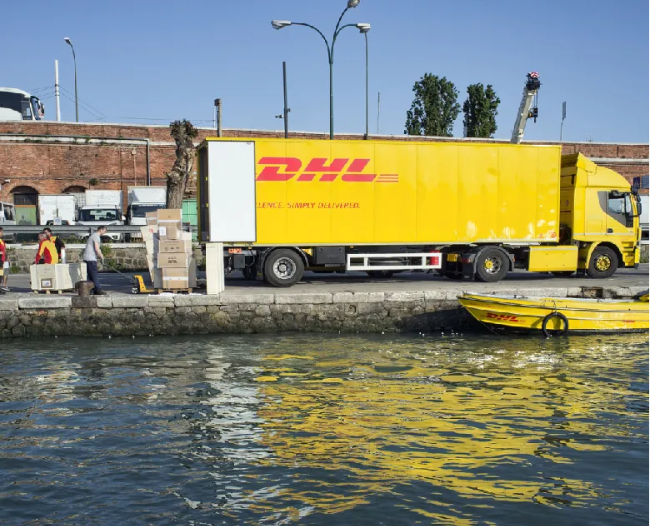Transforming Supply Chain Performance Through Strategic Partnerships
Businesses across industries are discovering the competitive advantages of outsourcing logistics operations to specialized 3PL providers. The right 3PL partnership delivers far more than basic warehousing and transportation services, offering comprehensive solutions that optimize the entire supply chain. Companies leveraging 3PL expertise gain access to sophisticated technology, established carrier networks, and operational best practices developed across multiple clients and industries. The flexibility of 3PL services allows businesses to scale operations seamlessly while converting fixed logistics costs into variable expenses. From small e-commerce startups to established manufacturers, organizations are finding that 3PL partnerships provide the infrastructure and expertise needed to meet evolving customer expectations and market demands.
Cost Efficiency and Financial Flexibility
Elimination of Capital Expenditures
3PL services remove the need for substantial upfront investments in warehouse facilities, material handling equipment, and transportation assets. By leveraging 3PL infrastructure, businesses avoid the long-term financial commitments of property leases, equipment financing, and technology systems. The 3PL model converts these fixed costs into variable operating expenses that align directly with business volume and requirements. Companies using 3PL services can allocate capital to core business functions rather than logistics infrastructure, improving overall financial performance. The shared-resource nature of 3PL operations provides access to premium facilities and equipment at a fraction of the cost of ownership.
Volume-Based Discounts and Optimized Routing
Established 3PL providers secure preferential rates with carriers and service providers due to their aggregated shipping volumes. These 3PL-negotiated discounts often surpass what individual companies could obtain independently, directly reducing transportation costs. Sophisticated 3PL operations utilize advanced routing algorithms that identify the most cost-effective shipping methods for each shipment. The collective buying power of 3PL networks extends beyond transportation to include favorable rates on packaging materials, equipment leasing, and labor services. Businesses benefit from these 3PL advantages without the administrative burden of managing multiple vendor relationships and contracts.

Operational Expertise and Best Practices
Continuous Process Improvement
3PL providers bring cross-industry experience and specialized knowledge that drives ongoing logistics optimization. The best 3PL partners employ continuous improvement methodologies to enhance warehouse layouts, picking processes, and inventory management techniques. Companies benefit from 3PL expertise in lean logistics principles, labor management strategies, and productivity measurement systems. The multi-client nature of 3PL operations creates opportunities to implement proven solutions from other successful implementations. Regular 3PL performance reviews and operational audits ensure processes remain efficient and aligned with evolving business requirements. This external perspective often identifies improvement opportunities that internal teams might overlook.
Compliance and Risk Management
Professional 3PL providers maintain up-to-date knowledge of complex logistics regulations and safety standards. The 3PL advantage includes built-in compliance with transportation regulations, warehouse safety protocols, and international trade requirements. Quality 3PL operations implement rigorous security measures to protect inventory and prevent loss or damage. The distributed nature of 3PL networks provides built-in business continuity protection against localized disruptions. Companies leveraging 3PL services transfer significant operational risk while maintaining visibility and control over their supply chains. This risk mitigation proves particularly valuable when expanding into new markets or handling regulated products.
Technology and Visibility Advantages
Advanced Warehouse Management Systems
3PL providers invest in sophisticated WMS platforms that offer real-time inventory tracking and order visibility. These 3PL systems typically surpass the capabilities of in-house solutions, providing granular control without capital investment. The best 3PL technology stacks integrate seamlessly with client ERP and e-commerce platforms for end-to-end supply chain visibility. Modern 3PL systems include predictive analytics that help optimize inventory levels and anticipate demand fluctuations. Businesses partnering with 3PL providers gain immediate access to these advanced tools without software licensing fees or implementation costs.
Data Analytics and Performance Reporting
Comprehensive 3PL reporting provides actionable insights into logistics performance and cost drivers. Quality 3PL partners deliver customized dashboards that track key metrics like order accuracy, fulfillment speed, and transportation efficiency. The data aggregation capabilities of 3PL systems identify trends and opportunities across multiple facilities and transportation lanes. Advanced 3PL analytics help businesses make informed decisions about inventory placement, carrier selection, and order routing. These data-driven insights often reveal hidden cost savings and service improvement opportunities throughout the supply chain.
Scalability and Market Responsiveness
Flexible Capacity Management
3PL services provide elastic logistics capacity that expands or contracts based on business needs. The 3PL model allows companies to handle seasonal peaks, promotional surges, or unexpected demand spikes without permanent infrastructure investments. Multi-client 3PL facilities maintain buffer capacity and flexible labor pools to accommodate volume fluctuations. This scalability advantage enables businesses to pursue growth opportunities without being constrained by logistics limitations. The ability to scale through 3PL partnerships proves particularly valuable for companies experiencing rapid growth or entering new markets.
Geographic Expansion Support
3PL networks offer established infrastructure in multiple markets, eliminating the challenges of setting up new distribution locations. Companies can leverage 3PL facilities to test new markets with minimal risk before making long-term commitments. The 3PL advantage includes local market knowledge, established carrier relationships, and regulatory compliance in each operating region. Distributed inventory across 3PL locations reduces transit times and shipping costs to customers in various geographies. This geographic flexibility helps businesses improve service levels while controlling logistics costs in new markets.
Customer Service Enhancements
Improved Delivery Performance
3PL partnerships enable businesses to offer faster, more reliable delivery options through optimized distribution networks. Strategic inventory placement across 3PL facilities reduces transit times while minimizing transportation expenses. The carrier diversity available through 3PL providers ensures the right balance of speed and cost for each shipment. Consistent 3PL performance builds customer satisfaction and loyalty through reliable order fulfillment. Many 3PL operations provide value-added services like appointment scheduling and white-glove delivery that enhance the customer experience.
Returns Management Excellence
Professional 3PL providers streamline the reverse logistics process with dedicated returns processing centers. Specialized 3PL returns handling includes inspection, sorting, and disposition according to predefined business rules. Advanced 3PL systems provide real-time visibility into return status and inventory updates. The best 3PL partners offer customizable return solutions that align with brand standards and customer service objectives. Efficient 3PL returns processing accelerates refunds and exchanges, improving customer satisfaction and encouraging repeat purchases.
Sustainability and Green Logistics
Optimized Transportation Networks
3PL providers maximize load efficiency and minimize empty miles through sophisticated route planning. The consolidation capabilities of 3PL operations reduce total shipments and associated emissions. Many 3PL providers offer carbon-neutral shipping options and sustainability-focused carrier selections. The shared transportation model inherent in 3PL services naturally reduces environmental impact compared to dedicated fleets. Businesses benefit from these 3PL sustainability initiatives without requiring internal expertise or resources.
Eco-Friendly Warehouse Operations
Leading 3PL providers implement sustainable practices in facility design and daily operations. Energy-efficient lighting, solar power, and smart building systems reduce the environmental footprint of 3PL warehouses. Many 3PL operations employ recycling programs, reusable packaging solutions, and waste reduction initiatives. The scale of 3PL facilities allows for investments in green technologies that would be impractical for individual companies. Partnering with sustainability-focused 3PL providers helps businesses achieve environmental goals while maintaining operational efficiency.
FAQ
How do 3PL providers charge for their services?
3PL pricing typically includes storage fees (per pallet or square foot), handling charges (per order or unit), and transportation costs (actual carrier charges plus management fees).
What size business benefits most from 3PL services?
While businesses of all sizes use 3PL providers, companies with $5M+ in revenue often see the greatest benefits from outsourcing logistics operations.
Can I maintain control over my inventory with a 3PL provider?
Yes, modern 3PL systems provide real-time inventory visibility and control, often with superior tracking capabilities compared to in-house solutions.
How do I choose between different 3PL providers?
Evaluate providers based on industry experience, geographic coverage, technology capabilities, and cultural fit with your organization's values and needs.

 EN
EN







